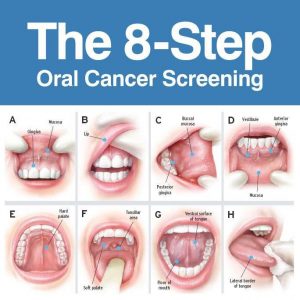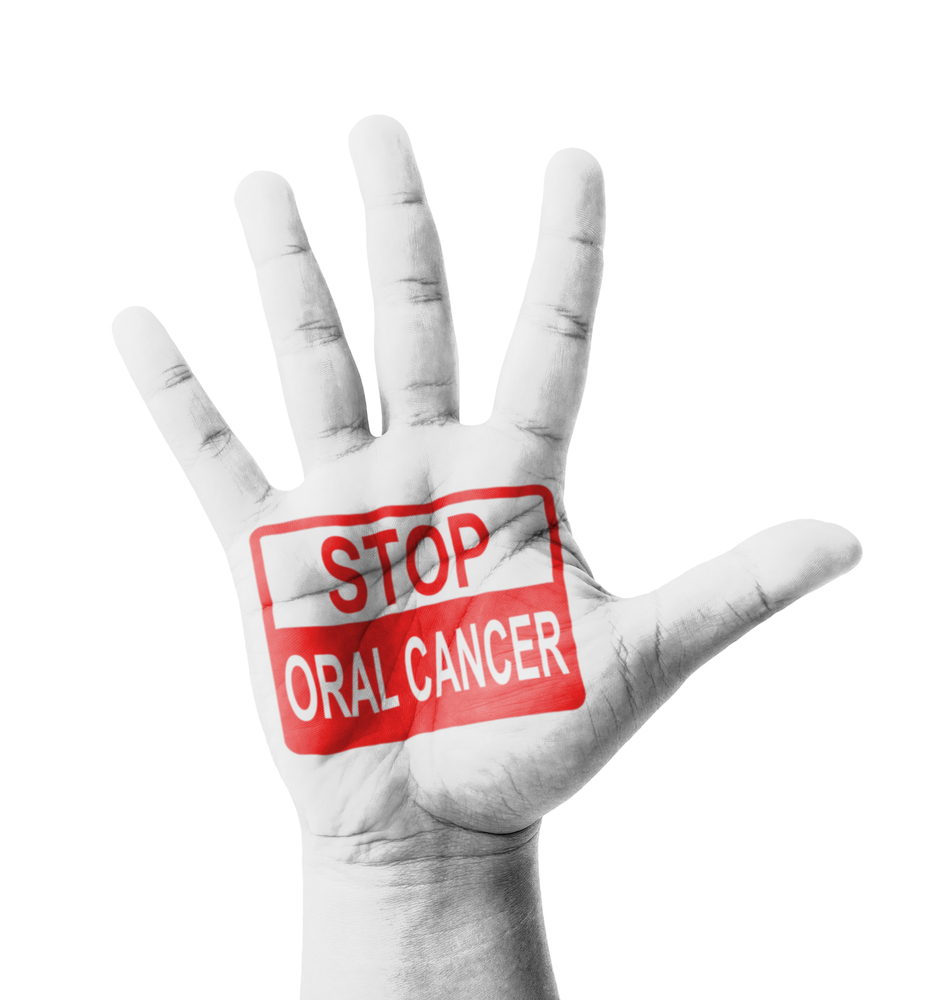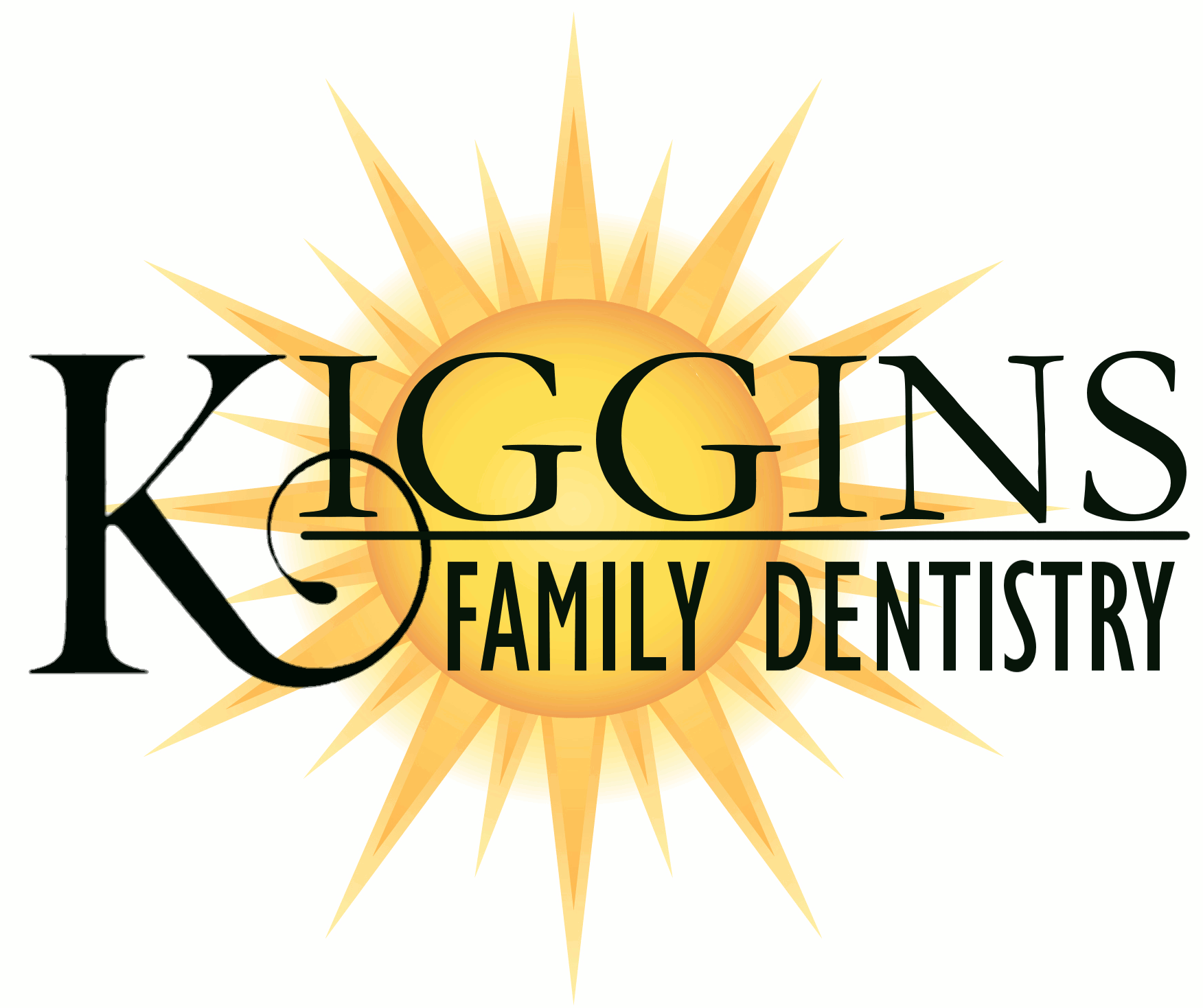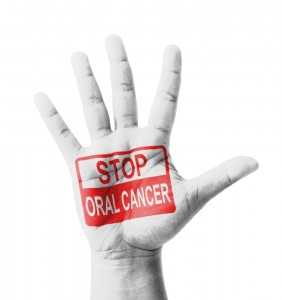How can I tell if I have Oral Cancer?
Did you know that approximately 36,000 people will be diagnosed with oral cancer this year? Well, it’s true. And or almost 8,000 of those individuals, it will prove to be fatal. So what can you do to reduce your risk?
The key is early detection.
If you are able to identify and obtain timely treatment, your chance of death from oral cancer will be greatly reduced. But in order to identify it, you must be familiar with it. So, lets get down to some basics:
what is oral cancer?
Often referred to as “Mouth Cancer,” Oral Cancer is defined as the uncontrollable growth of cells that have invaded and caused damage to surrounding tissue in the mouth area. It includes cancers of the lips, toungue, cheeks, hard & soft palate, floor of the mouth, sinuses, and throat. If not diagnosed and treated properly and early, it can be life threatening.
How do I tell if I have Oral Cancer?
As part of your routine dental exam, your dentist will conduct an oral cancer screening exam. When he or she does this, they will feel for any irregular lumps or tissue changes in your neck and head. When examining your mouth, your dentist will check for any discolored tissue, sores, or the symptoms listed below:
The most common symptoms are:
- Lumps, rough spots, eroded areas, or swellings in any part of the mouth
- Development of white and/or red splotches in the mouth
- Persistent sores around the mouth area that bleed easily and do not heal within a couple of weeks
- Unexpected bleeding or numbness
- Pain in the throat–a feeling that something may be stuck back there
- Difficulty eating and swallowing
- Hoarseness in voice
- Ear pain
- Dramatic weight loss
It is important to realize that while these changes could potentially be a sign of oral cancer, that is not always the case! Oftentimes soreness in the mouth is caused by toothaches, cavities, cold sores or strep throat. The ear ache might only be an ear ache. The weight loss might be due to a different eating style. So while you shouldn’t jump to conclusions, if any of the above listed changes do not have a reasonable explanation due to your lifestyle, it would be wise to get it checked out by a professional. Especially if cancer runs in your family. As the popular English idiom states, it is always “better to be safe than sorry.”
I think I have Oral Cancer — Who should I go to for help?
After your dentist conducts an oral cancer screening, he may perform an oral brush biopsy if he or she is suspicious of cancer. These tests are usually painless and conducted quickly. If your dentist discovers possible oral cancer, he or she may recommend that you see a professional who will be able to treat your cancer. Oral cancer is treated much like any other cancer–with surgery to remove the cancerous cells, followed by radiation or chemotherapy to destroy any remaining cancerous cells left behind.
What can I do to prevent Oral Cancer in the first place?
This is a fantastic question. If you follow the below tips, you can drastically reduce your risk!
- First, DON’T SMOKE or use any other tobacco products. Refrain from alcohol if possible. If not, only use in moderation.
- EAT A WELL BALANCED DIET! Healthy nutrition leads to healthy bodies. Healthy bodies are better able to defend themselves against bad cells and cancerous growth.
- LIMIT YOUR EXPOSURE TO THE SUN. I understand that we all like to have a nice tan once in a while–but consistent exposure to the sun causes an increases risk of cancer on the lips. When in the sun, make sure to use protective sun screen/lotions on your skin and lips to minimize UV rays from the sun.
- CONDUCT A SELF EXAM AT LEAST ONCE A MONTH. Using a mirror and a bright light, look inside of your mouth for any of the above listed symptoms. Examine all surfaces. Feel for any bumps or enlarged lymph nodes. If you notice any drastic changes in the appearance of your mouth, call your dentist. Keep in mind that well over 90% of Oral Cancer is found on the side of the tongue or floor of the mouth.

- SEE YOUR DENTIST ON A REGULAR BASIS. Conducting self examinations will help, but your dentist has been trained to spot those dangerous spots in your mouth, even when they are too small for you to see. Don’t be afraid to ask your dentist to perform an oral exam.
- MAINTAIN GOOD ORAL HYGIENE. The basics–brushing your teeth & flossing–will help keep away unwanted growth that could potentially become cancerous.
The American Cancer Society recommends oral cancer screening exams every 3 years for individuals over 20 years old and annually for those over 40. Because your mouth is such a crucial part of your daily life, don’t take it for granted! Take the necessary measures to prevent and/or treat oral cancer.
References:
http://www.webmd.com/oral-health/guide/oral-cancer?page=1
http://www.nidcr.nih.gov/oralhealth/Topics/OralCancer/DetectingOralCancer.htm
http://www.cancer.org/cancer/oralcavityandoropharyngealcancer/


